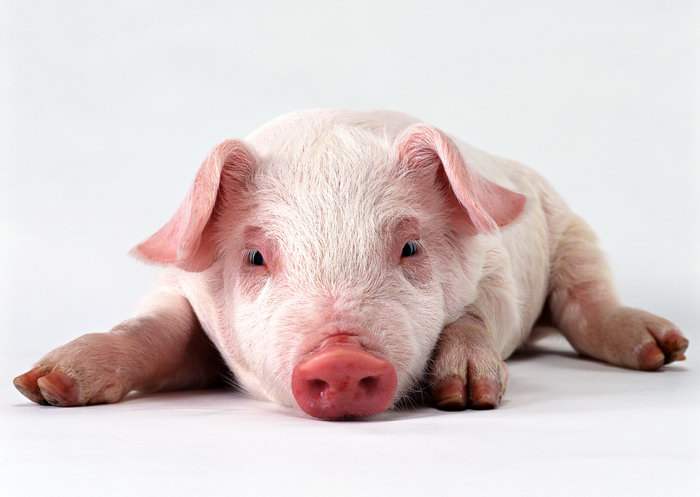(单词翻译:单击)
About 80% of antibiotics worldwide are used in animals, something health experts say is contributing to the growing problem of antibiotic resistance, in which common infections no longer respond to the drugs used to treat them. Now the the World Health Organization (WHO) has released new recommendations for antibiotic use in animals, taking a strong position that the use of medically important antibiotics should be substantially dialed back, and that the use of antibiotics for growth promotion should be banned altogether.
世界上80%的抗生素都用在了动物身上,健康专家认为这导致了抗抗生素性这一日益严重的问题,从而使得治疗常见感染的药物不再那么有效。而今,世界卫生组织发布了给动物使用抗生素的新建议,强烈建议应大量减少使用具有重要医学意义的抗生素,并要求禁止使用促进生长的抗生素。
The WHO is also recommending that healthy animals only receive antibiotics to prevent illness if a disease is already diagnosed in that animal's flock or herd. When veterinarians do treat animals, the WHO says they should only use mediations that are of least importance to human health (the agency provides a list).
世界卫生组织还建议:对于健康的动物来说,只有当它们的群类被确诊为患有疾病时,才能给它们注射抗生素预防疾病。世界卫生组织表示,当兽医给动物注射抗生素时,他们应该使用对人类健康危害最小的抗生素(该组织提供了一列清单)。

Antibiotics that are used in animals are either identical or very similar to antibiotics used in humans, which is why they contribute to the increase in infections among humans who don't respond to the drugs. The WHO says that potential consequences from completely restricting antibiotics for growth promotion "appear to be relatively small or non-existent."
给动物使用的抗生素要么与人类使用的相同,要么就是非常相似,所以会导致对药物没有反应的人群的感染量增加。世界卫生组织表示,完全限制促进生长的抗生素的潜在后果"似乎相对较小或不存在。"
Whether countries will the new recommendations remains to be seen. "Countries will follow these guidelines if they are sufficiently impressed with how urgent this crisis is and if they have good leadership," says Dr. David Wallinga, a senior health officer at the Natural Resources Defense Council (NRDC).
各国是否听从这一新建议仍有待观察。"如果各国完全清楚这一危机的紧急程度或者有很好的领导人,那它们将会遵从这些准则,"自然资源保护委员会的高级卫生官员大卫·沃林加说道。
Wallinga, who served on the WHO's guidelines development group, calls the recommendations "terrific," adding that some countries already follow these best practices. "I think [the guidelines] can work because it has worked," he says. "We have several examples of countries that have enacted these steps exactly and have seen remarkable decreases in their overall use of medically important antibiotics in just a couple years."
沃林加在世界卫生组织准则制定小组任职,他认为这些建议"棒极了",并称有些国家早就遵从这些最佳做法了。"我认为这些准则一定有用,因为事实证明的确如此,"他说道。"有几个国家已确切地制定了这些步骤,短短几年内,使用具有重要医学意义抗生素的情况整体出现显著下降趋势。"
The Netherlands, for example, has reduced antibiotic use in animals by nearly 60%, and Namibia no longer uses antibiotics in its beef production. In 2006, the European Union banned the use of antibiotics in animals for growth promotion. The U.S. just officially restricted the use of antibiotics for growth promotion in 2017.
比如,荷兰已将对动物使用抗生素的情况降低了近60%,赞比亚在牛肉生产过程中已不再使用抗生素。2006年,欧盟禁止对动物使用促进生长的抗生素。2017年,美国正式限制使用促进生长的抗生素。
译文属可可原创,仅供学习交流使用,未经许可请勿转载


